Brake fluid is an essential component of a vehicle’s braking system, as it helps to transmit the force from the brake pedal to the brake pads and calipers, which then apply pressure to the brake rotors to slow or stop the vehicle.
Over time, brake fluid can become contaminated or degraded, affecting its performance and, ultimately, the performance of the brakes.
For this reason, it is important to change the brake fluid regularly, as the vehicle manufacturer recommends. There are several reasons why brake fluid should be changed:
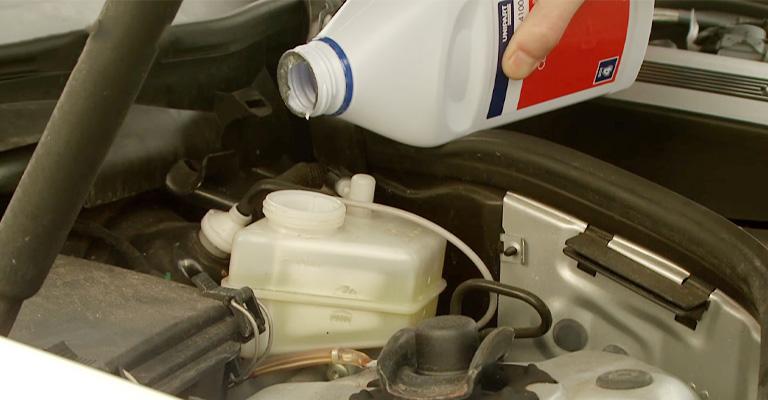
Contents
Contamination
Brake fluid can become contaminated with water, dirt, or other foreign substances, affecting its performance.
Water can enter the brake system through leaks or the brake fluid itself (brake fluid absorbs water over time).
Contaminated brake fluid can cause corrosion and other problems in the brake system and can reduce the brakes’ effectiveness.
Degradation
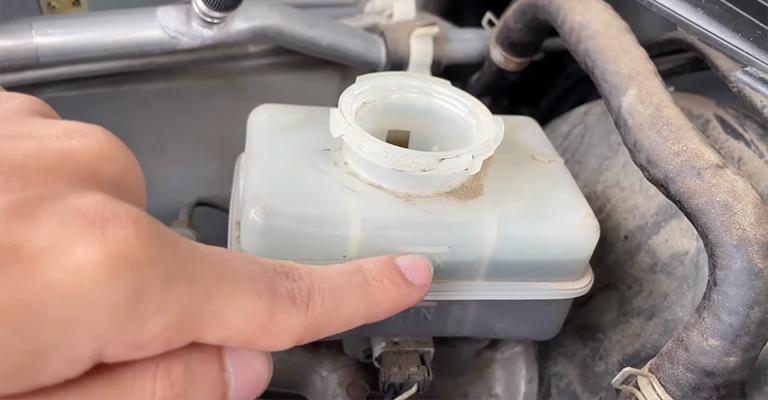
Brake fluid is hygroscopic, which means it absorbs moisture from the air. As the brake fluid absorbs moisture, it can become degraded and less effective at transmitting force.
This can lead to a soft or spongy brake pedal and ultimately affect the vehicle’s braking performance.
System Maintenance
Changing the brake fluid allows you to flush out any contaminants or moisture that may have entered the brake system and replenish the brake fluid with fresh, clean fluid.
This helps maintain the brake system’s integrity and performance over time. This will typically involve draining the old fluid from the brake system and replacing it with fresh fluid.
Changing the brake fluid every two to three years or every 25,000 to 50,000 miles is recommended, depending on the vehicle and the type of brake fluid used.
Do I Really Need A Brake Fluid Flush?
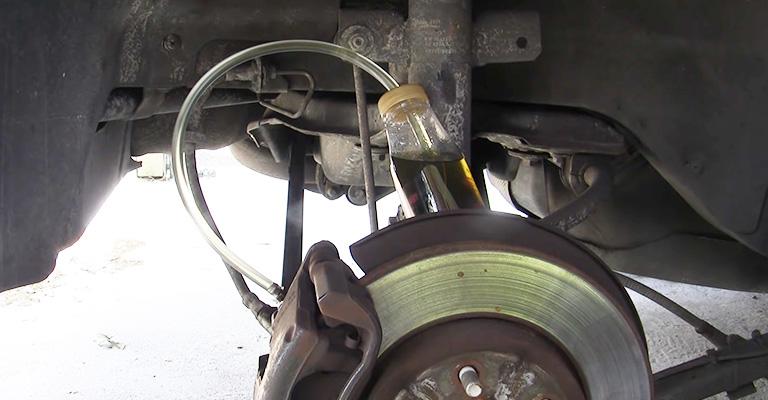
There is no doubt that brakes are one of the most important elements of vehicle safety. It is common for customers to wonder, “Is a brake fluid flush really necessary?” Yes, short and sweet.
The hydraulic fluid helps your brake system amplify your foot’s pressure. When a heavy, fast-moving vehicle is stopped with minimal effort, this makes stopping possible.
Keeping your brake fluid in good condition requires regular maintenance. It is a legitimate preventive maintenance measure to flush or change the brake fluid in your car.
We also recommend a brake fluid flush when we replace your brake calipers, pads, or rotors. It is crucial for vehicles with antilock brakes (ABS) and traction control to drain dirty brake fluid.
Reason #1:
Moisture and small particulates from contaminated fluid have a detrimental effect on antilock braking (ABS) and traction control. We recommend flushing the brake fluid before it can damage these expensive brake parts.
For instance, a brake module activates the ABS and pulses the brakes to help you stop straight. There is typically a cost associated with this critical component of several hundred dollars.
Reason #2:
In addition to the heat generated by your ABS and traction control systems, the fluid in your vehicle further degrades as they operate.
The heat generated by ABS and traction control reduces your brake fluid’s lifespan, even though these safety systems rely on clean brake fluid.
Reason #3:
Breaker fluid’s boiling point decreases as it ages and becomes contaminated with tiny particles.
When it comes to braking, every inch counts. You might not notice the reduction in performance right away but keep it in mind when you need to brake. A brake can become completely inoperable in extreme cases.
Reason #4:
The fact that brake fluid is hygroscopic means it actively attracts moisture from the air. Many people cite this as the main reason to change their brake fluid.
You can prevent corrosion and failure of your metal brake components by flushing the brake fluid.
When Do I Need a Brake Fluid Change?
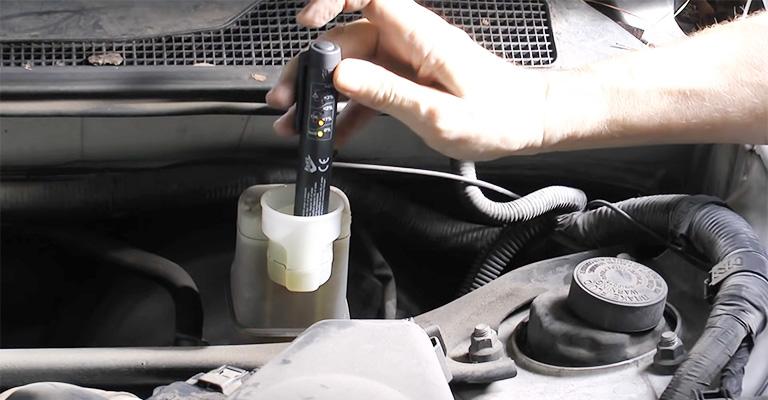
In the long run, corrosion and rust can damage your braking system structurally, resulting in costly repairs.
To avoid these deeper issues with the brake system, it is recommended to keep the brake fluid topped off regularly. Brake fluid flushes are recommended every 30,000 miles or two years, depending on your driving and braking patterns.
For instance, if you commute mostly on highways, you may accumulate miles without using your brakes heavily. When your brake fluid changes every 30,000 miles, your system is less stressed, and you can go for longer without changing it.
Two years may be more appropriate for drivers with shorter commutes that involve a lot of braking. Professional drivers like Uber and Lyft also receive this more frequent service.
You may also need to change your brake fluid flush cadence based on your vehicle’s year, make, and model. To gain further insight, speak with your local mechanic or consult your owner’s manual.
Signs You Are Due for a Brake Fluid Change
Many times, brake fluid is out of sight, out of mind for us until we have a problem with our vehicle. On the other hand, your brake fluid keeps you safe on the roads by working hard every single day.
The brake fluid may become burnt out, depleted, or contaminated over time, preventing proper brake operation. Look for these 5 signs to determine if you need to flush your brake fluid.
1. Routine Maintenance for Brake Fluid Flushes
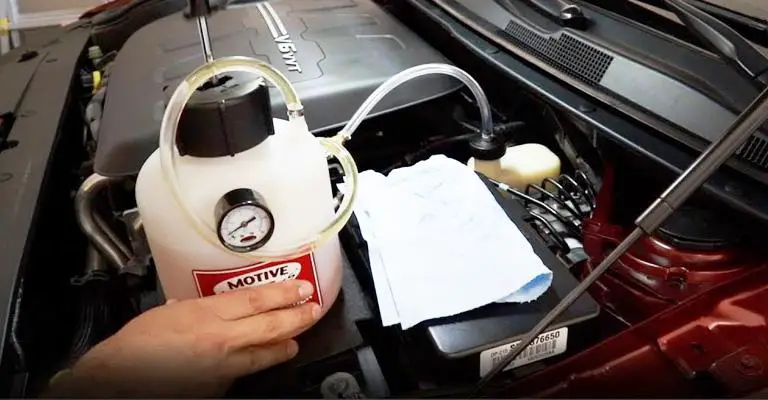
As a last resort, you can replace your brake fluid according to your recommended maintenance schedule. You must flush your brake fluid every two years or 30,000 miles on your car.
Additionally, routine maintenance heavily depends on the driving you do. The brake fluid flush may need to be performed more frequently if you drive short routes with frequent braking. Check your owner’s manual to see if your vehicle has specific brake fluid information.
2. Strange Noises or Smells when Braking
It may be caused by low brake fluid or another brake system issue if you hear strange noises when you brake. Various sounds can hear, including scraping and grinding.
You may smell burning when the brake fluid burns out after hard braking. When this happens, you should pull over in a safe location and allow your vehicle to cool down.
For more information and to schedule a service visit, you should also contact a local mechanic. Burnt brake fluid can lead to more severe problems, including brake failure.
3. Ineffective Braking Performance
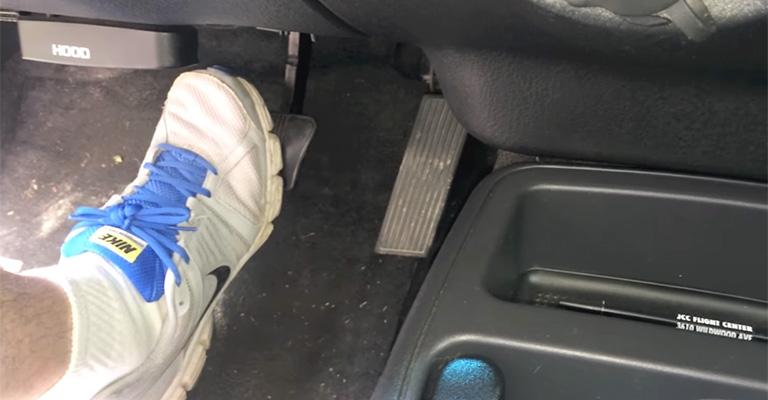
In an emergency, you need to have a brake system that reacts quickly and reliably. The brakes on your vehicle may need servicing if you experience delays or difficulties when slowing or stopping.
You may need a brake fluid flush if you’re experiencing such problems. Other possible causes of brake system problems include warped rotors, worn brake pads, or issues with other brake system components.
Generally, ineffective braking is caused by an underlying problem, such as worn treads, shocks, or struts. When your brake system needs to be repaired, a professional can assess your brake system and determine what needs to be done.
4. ABS Dashboard Light
You’ve got an ABS dashboard light indicating a problem with your antilock braking system. To prevent skidding and traction loss, this system prevents the locking up of the wheels during braking.
When the brake fluid level is low, the ABS is activated automatically to help prevent your vehicle from skidding.
5. Soft, Bouncy, or Spongy Brake Pedal
Would you describe your brake pedal as soft, spongy, loose, or even bouncy when you push it? Is the brake pedal necessary to be pushed to the floor for your vehicle to stop and slow down? It is a sign that you need to change your brake fluid.
Low brake fluid will cause your brakes to become soft because air fills the gaps in your brake lines. If you do not have your brakes serviced immediately after noticing a problem, they can be frightening and dangerous.
What Happens During a Brake Fluid Flush?
It is important to flush brake fluid carefully to ensure proper brake functionality; however, an experienced and skilled mechanic can do it quickly and efficiently. There are four main components to this process:
Draining Hydraulic Fluid:
To begin this service, an expert removes the system’s old, worn, and depleted hydraulic fluid.
Clean out Debris:
The next step in the mechanic’s process is to clean out your brake system to remove all debris.
Check For Rusted Braking Components:
An expert will not remove rust and corrosion if you wait a long time before getting the brake fluid flushed. Instead, replace your calipers, wheel cylinders, or other rusted metal components.
Brake Fluid Renewal:
After your system is filled with fresh braking fluid, your brake performance will be renewed effectively, preventing brake issues in the future.
Why Brake Fluid Flushes are Important?
It is pretty common for brakes to suffer from three primary problems that require brake fluid flushing:
- Brake fluid wears away and breaks down due to the braking process.
- This process leaves a moisture residue behind, causing your brakes to rust.
- Over time, the solution can become contaminated with debris, rubber, and metal.
- The failure of the brake system can result from these issues if left unattended.
Final Words
As with many other things related to car care, there is no hard-and-fast rule regarding when you should change your brake fluid. Driving on highways and doing many stop-and-go’s will likely result in your brake fluid (and brake pads) not lasting as long as a person who drives on the freeway.
